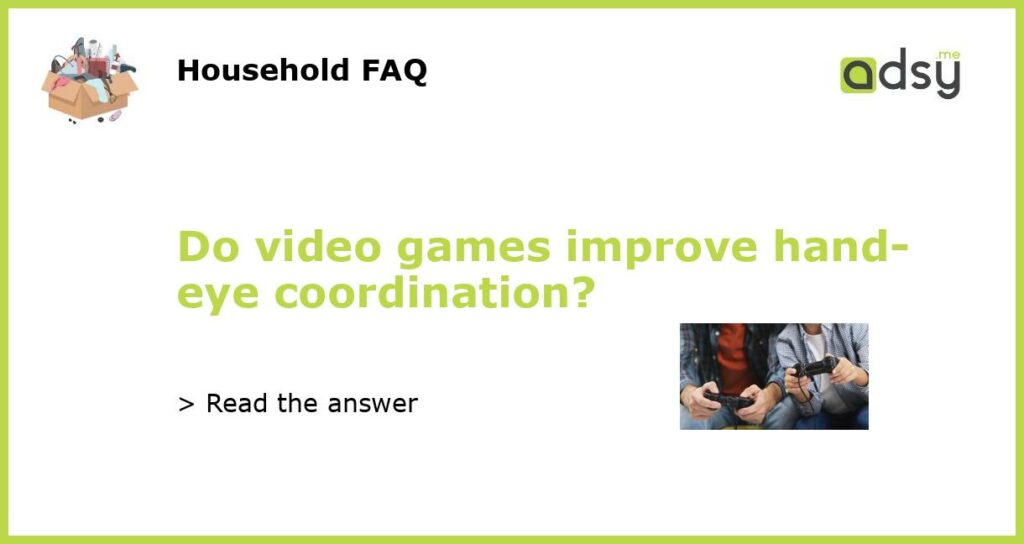What is hand-eye coordination and why is it important?
Hand-eye coordination refers to the ability of the vision system in conjunction with the muscles to coordinate and control the movements of the hands and fingers accurately. It is a fundamental skill required in various activities, including sports, driving, and even everyday tasks like writing or using cutlery. Good hand-eye coordination allows us to react quickly and accurately to visual stimuli, enabling us to perform tasks efficiently and effectively.
The impact of video games on hand-eye coordination.
Video games have often been criticized for their negative impact on physical and mental health. However, recent research suggests that certain types of video games can actually improve hand-eye coordination. Video games require players to process visual information rapidly, make decisions, and execute precise movements with their hands and fingers. Regularly engaging in video game activities that demand these skills may enhance hand-eye coordination over time.
How video games enhance hand-eye coordination.
Video games provide a unique opportunity to practice and develop hand-eye coordination in a controlled virtual environment. The visual stimuli presented on the screen require players to quickly react and manipulate their controllers or keyboards to respond. This constant repetition and fine-tuning of motor skills can contribute to improved hand-eye coordination.
In addition, many video games have difficulty levels that progressively increase as players level up. This progressive increase in difficulty forces players to react faster and improves their ability to anticipate and respond to visual cues, further enhancing their hand-eye coordination.
Scientific evidence supporting the positive impact of video games.
A number of studies have been conducted to investigate the relationship between video games and hand-eye coordination. One study published in the Journal of Experimental Psychology found that action video game players showed improved hand-eye coordination compared to non-players. Another study published in the journal Neurology found that playing video games for just two hours a day improved hand-eye coordination and reaction times in a group of adults.
Furthermore, research conducted at the University of Rochester showed that action video game players displayed faster and more accurate recognition of visual stimuli compared to non-players. These findings suggest that video games can have a positive impact on cognitive processes related to hand-eye coordination.
Other benefits of video games for hand-eye coordination.
Video games not only improve hand-eye coordination but also offer additional benefits. Research has shown that video games can enhance problem-solving skills, attention span, and spatial awareness. These cognitive skills are closely related to hand-eye coordination and can further contribute to its improvement.
However, it is important to note that excessive video game playing can have negative effects and lead to sedentary behavior. It is recommended to engage in video games in moderation and maintain a healthy balance between physical activity and screen time.






